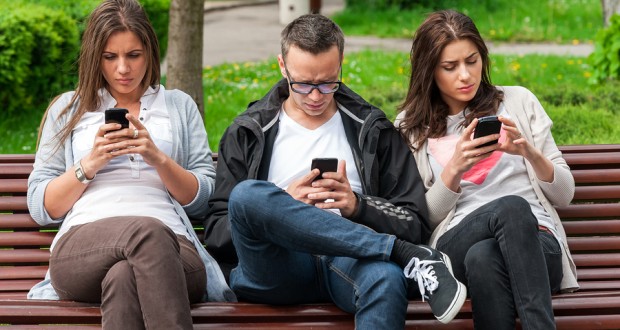If you don’t have time to read the whole post, here’s the bottom line: paging through Facebook posts and looking at other people’s pictures will make you unhappy. Using the platform to connect and converse with friends in a positive way won’t.
A study from the University of Copenhagen last December found that “lurking” on Facebook — reading other people’s posts and paging through their pictures — “can negatively affect your emotional well-being and satisfaction with life”. Facebook posts are curated. People post the photos that make them look good and happy. They write about the anniversary gift their spouse bought, not about the time their anniversary was forgotten or ended in arguments. They proudly display pictures of a smiling kid with a diploma, not a kid screaming “I hate you” when they’re disciplined for failing a class.
I don’t really have a problem with posting almost exclusively positive things. That’s not substantially different from the scrapbooks our mothers made or the slideshows of vacation photos that people in the 1960s used to torture their neighbors. It’s natural and human and perfectly healthy.

One of the awful vacation photos that most people don’t really want to look at.
But, as the saying goes, “don’t compare your insides with other people’s outsides.” The problem arises when other people start to assume that other people are happier and more successful and that we are failures, by comparison. Research shows that, of all activity on Facebook, less than 10% involves actively communicating with someone else. Most of the time we’re posting or reading or looking, not communicating.
The problem arises when we spend too much time on social media, and most of us think we spend too much time there. So much so that, in January, more people said they wanted to quit social media than smoking.
About one in five of us can’t go a few hours without checking Facebook or Instagram or Snapchat, and about a third of iPhone owners check their Twitter feed before they get out of bed. If you think you might be addicted to your phone, you’re probably right. But just to be sure, take this quiz:

There are all kinds of negative outcomes associated with addiction to social media: anger issues, sleep deprivation, anxiety, and depression. Even worse, most auto accidents now involve at least one driver on the phone.
But let’s get back to the misery. I did an unscientific poll today and asked 12 of my friends if they think Facebook is making them unhappy. All of them said no, but admitted they think it might make other people sad. But odds are, at least a few of them aren’t totally aware of the impact social media is having on their psyches.
Doctors say we’re not very good at gauging the impact of social media on our own mood or behavior. Most people think Facebook will make them feel better, but they’re mostly wrong.
Listen, there is no shame in admitting that you’re hooked on Facebook or Twitter. Social media is a powerful tool that can be used for positive change. But there’s also no shame in acknowledging that it’s not always positive in our lives.
In that study from Denmark’s capital, there were two groups of participants. Half of them used social media as usual. They were more likely to experience negative emotions like envy. The other half took a break for a week. That half felt more satisfied with their lives and rather their own well-being higher than the group that spent the week looking at photos of other people’s meals.
I’m not saying that you should close your Facebook account and walk away. That might work for some, but most of us use it to keep in touch with family and friends. I do suggest that you stop assuming it’s other people who are addicted and other people who feel depressed because of it. Set some reasonable limits (no social media after 7pm?), turn off your notifications (do you really need to know every time someone likes your post?), and let social media be a positive influence on your life, not one that makes you sad and cranky and jealous.
Best advice yet? Next time you want to message someone on social media, use your phone to call them instead.